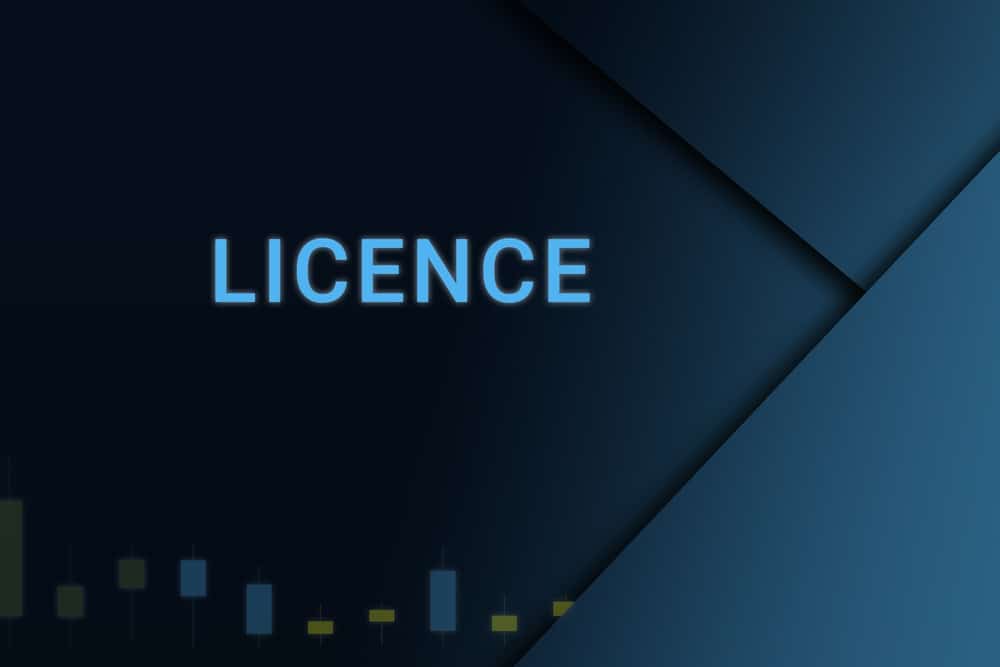
As most forex traders are aware, it’s always best to trade with a licensed and regulated forex broker governed by a well-known and respected national body such as the Financial Conduct Authority (FCA), European Securities and Markets Authority (ESMA), Cyprus Securities Exchange Commission (CySEC), or similar. However, it’s not unheard of for a broker to obtain a licence and then lose it due to failing to maintain the licensing body’s standards. So, what happens if a forex Broker loses its licence? Will clients be notified? And why would that happen? Are your funds immediately in danger if the broker you hold an account with has its licence revoked?
What Happens if a Broker Loses Its Licence?
If a broker fails for any reason, there are various next steps that can be taken, and they will depend on what exactly has gone wrong. If the broker has been exposed as running a scam or is accused of fraud, it may be that the firm is immediately dissolved. Depending on where the broker is based, the government might provide insurance that will cover the funds held by the brokerage and allow for compensation to the clients affected. Sometimes, depending on the assets the broker holds, another financial firm may agree to buy the assets and may even be able to transfer accounts to the new company with little interruption.
While a brokerage that loses its licence may decide to cease trading, this is by no means the only option. If a broker loses a licence in one jurisdiction, it may apply for a different licence in another one or continue to operate as an unlicensed offshore entity. That happened in 2022 when Union Standard International lost its FCA licence but continued to operate with an offshore licence out of an office registered in St. Vincent and the Grenadines.
If you are using an online brokerage that loses its licence and chooses to continue operating under an offshore licence, you may not immediately be aware. However, it will generally be reported in the industry news and discussed in online forex forums, so always keep an eye on what is going on in the forex news sections.
The platform itself, however, may continue without interruption to services and trading activities. While the broker would be morally obligated to let you know of the change of circumstances, there is no guarantee they would do so. However, your protections as a client would effectively change dramatically, potentially putting your funds at risk if your broker goes from being licensed by a respected authority to unlicensed or licensed in an offshore jurisdiction with very different standards.
Why Do Brokers Have Their Licences Revoked?
Each licensed forex broker must comply with specific regulations set out by the regulator under which it operates. They must also agree to accept periodic reviews and audits of their operations to ensure they are continuing to adhere to all national regulations and industry standards. Forex brokers must also honour the contracts they sign with each trading client as part of their onboarding process. Failure to comply with any laws or regulations could lead to the revocation of a licence.
The laws and regulations that brokers need to comply with will depend on the country in which they are based, and the rules set out by the national regulator that grants a licence. A broker that proves it is complying with all relevant regulations when it sets up shop can still have its licence revoked later if it does not continue to comply. Therefore, national regulators should carefully monitor the firms to which they grant licences to ensure they are still in compliance.

While laws vary from one country to another, there are some similarities. A key feature of forex regulation across different jurisdictions is that forex brokers should have enough funds to cover their clients’ investments. All forex brokers must also comply with fair representation legislation, which means they must clearly disclose all the potential risks of forex trading. They must not give any guarantees or make promises that traders will make a profit or be assured of a certain return on their investment.
Respected regulators, such as the Financial Conduct Authority (FCA), have a long list of rules and guidelines that firms must comply with to ensure brokers treat their customers fairly, deliver appropriate products and services, and put customer protection above their profits or income. Some of the specific rules that financial firms have to comply with under the FCA include the following:
- Products and services marketed and sold in the retail market are designed to meet the needs of identified consumer groups and are targeted accordingly.
- Consumers are provided with clear information and are kept appropriately informed before, during and after the point of sale.
- Where consumers receive advice, the advice is suitable and takes account of their circumstances.
- Consumers are provided with products that perform as firms have led them to expect, and the associated service is of an acceptable standard and as they have been led to expect.
- Consumers do not face unreasonable post-sale barriers imposed by firms to change products, switch providers, submit a claim or make a complaint.
Any failure to comply with any of these could mean that a broker’s FCA licence is revoked. Regulators in other countries insist on similar standards.
How Can I Check That My Broker is Safe?
It’s vitally important that you only trade with a regulated broker due to the protection that it gives you. Always check before you sign up with a broker and monitor the situation to make sure nothing changes with the regulatory status of the broker you’re using.
Remember that any broker can state it is regulated and even quote a licence number, so it’s wise to go to the regulator’s site and check that the broker is on the list of licensed firms. While you’re there, check that the contact details for the broker are exactly the same as on the site you’re considering signing up with. It’s not unusual for scammers to try and mimic or clone the website of another successful, regulated broker. They hope to cause confusion and encourage traders to sign up with them, thinking the site is legitimate.
Be especially wary of any broker or individual promising unrealistic or guaranteed results from forex trading or that pressures you to invest more money or invest quickly due to a ‘time-sensitive opportunity’. These are all usually signs of a scam. Also, be wary of individuals claiming they can invest on your behalf. Generally, anyone offering a financial service to customers must be licensed and regulated, whether an individual advisor or a company.
Other red flags include brokers that do not let you withdraw your money or ask for more money in the form of ‘admin fees’ or tax when you state that you want to withdraw your cash. Suppose your broker is behaving in questionable ways. In that case, you can complain to its regulating body and the authorities in your jurisdiction, such as the national police, who will often have a fraud department to deal with such things.
Related Articles
Safe Forex Brokers
Looking for safe, reliable forex brokers licensed to operate in your jurisdiction? Check out our table of recommended brokers.
| Broker | Features | Min Deposit | EURUSD Spread | ||
|---|---|---|---|---|---|
 Your capital is at risk
US Clients: No Regulated : Yes Your capital is at risk
US Clients: No Regulated : Yes
|
– Regulated by FCA, FSCA, CMA and FSC |
$200 | ECN 0.1, Standard 1.6 | ||
 Your capital is at risk
US Clients: No Regulated : Yes Your capital is at risk
US Clients: No Regulated : Yes
|
– 40% New Member Bonus
|
$100 | Fixed |
Sign
Up
Europe* CFDs are complex instruments and come with a high risk of losing money rapidly due to leverage. 79% of retail investor accounts lose money when trading CFDs with this provider. You should consider whether you understand how CFDs work and whether you can afford to take the high risk of losing your money.
|
|
 Between 74-89 % of retail investor accounts lose money when trading CFDs
US Clients: No Regulated : Yes Between 74-89 % of retail investor accounts lose money when trading CFDs
US Clients: No Regulated : Yes
|
|
$200 | NDD 0.09 / Standard 0.69 |
Sign
Up
Between 74-89 % of retail investor accounts lose money when trading CFDs
|
|
 * 82% of retail investor accounts lose money when trading CFDs with this provider. You should consider whether you can afford to take the high risk of losing your money
US Clients: No Regulated : Yes * 82% of retail investor accounts lose money when trading CFDs with this provider. You should consider whether you can afford to take the high risk of losing your money
US Clients: No Regulated : Yes
|
|
100GBP/AUD/EUR/USD | variable |
Sign
Up
* 82% of retail investor accounts lose money when trading CFDs with this provider. You should consider whether you can afford to take the high risk of losing your money
|
|
 Your capital is at risk
US Clients: No Regulated : Yes Your capital is at risk
US Clients: No Regulated : Yes
|
– Flexible leverage up to 500:1 |
$200 | From 0.1 | ||
 Your capital is at risk
US Clients: No Regulated : Yes Your capital is at risk
US Clients: No Regulated : Yes
|
$50 | 0.02 | |||
 51% of retail CFD accounts lose money
US Clients: No Regulated : Yes 51% of retail CFD accounts lose money
US Clients: No Regulated : Yes
|
|
$50 (varying by Country) | from 1 |
Sign
Up
*Don’t invest unless you’re prepared to lose all the money you invest. This is a high-risk investment and you should not expect to be protected if something goes wrong. Take 2 mins to learn more
|
|
 Your capital is at risk
US Clients: No Regulated : Yes Your capital is at risk
US Clients: No Regulated : Yes
|
|
$5 | From 0.0 pips | ||
 Your capital is at risk
US Clients: No Regulated : Yes Your capital is at risk
US Clients: No Regulated : Yes
|
– CySEC, FCA, FSCA, SCB Regulated |
$100 | |||
|
|
|||||
Make sure you are aware of what is happening in the forex world. If a popular forex broker loses its licence, it will generally be reported in the industry news and discussed in online forex forums. If such a broker continues to operate as an unlicensed offshore broker, that is usually the time to look for a new broker. Of course, some traders trade with offshore brokers, and there are even a few minor advantages to doing so, but it is generally not advisable.
Licensed and regulated brokers offer a range of client protections, commit to complying with all regulator rules and guidelines, and come with the peace of mind of knowing that the broker’s activities are being monitored and that the firm is regularly checked and audited.
If a broker loses its licence, it may cease trading or be taken over by another company, and clients will generally be notified. You should, however, be aware that it may also continue to trade as an unlicensed brokerage, registering in an offshore location and using an overseas address. In such a case, the platform itself might not change much, but your level of protection as a client will, meaning you will probably want to find yourself a new broker as soon as possible.